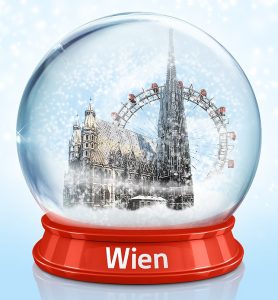3.4 Gefühle

Guten Tag!
Zum Aufwärmen machen wir unseren Tagesminiplausch und eine Wiederholung.
Wiederholung
In the previous lesson, you learned how to say how you are doing and how to ask others how they are doing. Let’s do a quick review.
Jetzt bist du dran!
Get out your audio journal and answer the question, Wie geht’s?
Lektionsüberblick
What kind of typical responses do you give to the question “How are you”? Many people respond with a very simple “fine” – in particular, if they do not know the greeter/questioner well. But when you are talking to friends or family, you probably give a more specific response (in other words, you treat “How are you?” like a real question and not a greeting.) You might say “tired” or “nervous” instead the complete thought “I am tired” or “I’m feeling nervous”. The listener fills in the gaps and understands the complete thought behind the single word. (What we are getting at is that you would never use those words to complete the sentence “I am doing…”, which is the literal direct response to “How are you?”.)
If you want to respond to “Wie geht’s?” with the physical or mental states like “müde” (tired) or “nervös”, you will need to say the complete thought (I am tired. I am nervous.). Otherwise, your single word answer will sound like “I am doing tired” or “I am doing nervous”.
In this lesson, we will expand on our ability to answer the question “Wie geht’s?” by being able to talk about feelings (Gefühle), other states of mind (Geisteszustände), and physical states (körperliche Zustände). In the end, you will be able to 1) identify feelings that are cognates, 2) identify opposites, and 3) create opposites by adding “nicht”.
1) Identify feelings that are cognates
It is important to have the vocabulary to express our feelings and states of mind and body. A great place to start is with words that are similar between two languages. Can you tell what these words mean? For the first word listed, think of the d as a th. That might help!
Gefühle (Feelings)
| Ich bin dankbar. |
Ich bin nervös. |
Ich bin motiviert. |
| Ich bin deprimiert. |
Ich bin inspiriert. |
Ich bin optimistisch. |
| Ich bin frustriert. |
Ich bin irritiert. |
Ich bin unmotiviert. |
| Ich bin hungrig. |
Let’s practice!
Jetzt bist du dran!
2) Identify opposites
Using the emoji cues in the activity below, see if you can match each sentence describing a feeling with its opposite.
Read about Becca’s good day and Markus’ bad day in the activity below. Then practice building sentences.
Jetzt bist du dran!
3) Create opposites by adding “nicht”
You might have noticed above how we created the opposite of müde (tired) with the words nicht müde (not tired). Let’s practice building some more opposite feelings in this way.
Jetzt bist du dran!
Österreich im Blickpunkt: Die Schneekugel
 The snow globe (Schneekugel) dates back to at least 1878, as seen in the Paris Exposition Universelle (1878). At the end of the 19th century the Austrian Erwin Perzy, a producer of surgical instruments, popularised the Schneekugel and got the first patent for it. Originally his goal was to develop an extra bright lightsource for use as a surgical lamp. As he tried to intensify the candlepower of a so-called Schusterkugel (a water-filled flask used to focus light since the Middle Ages) with particles made out of different materials for reflection purpose, the effect reminded him of snowfall. He then built his first scene globe with a model of the basilica of Mariazell. Perzy and his brother Ludwig opened a shop in Vienna. The material and methods used to make the particles for Perzy globes is a family production secret.
The snow globe (Schneekugel) dates back to at least 1878, as seen in the Paris Exposition Universelle (1878). At the end of the 19th century the Austrian Erwin Perzy, a producer of surgical instruments, popularised the Schneekugel and got the first patent for it. Originally his goal was to develop an extra bright lightsource for use as a surgical lamp. As he tried to intensify the candlepower of a so-called Schusterkugel (a water-filled flask used to focus light since the Middle Ages) with particles made out of different materials for reflection purpose, the effect reminded him of snowfall. He then built his first scene globe with a model of the basilica of Mariazell. Perzy and his brother Ludwig opened a shop in Vienna. The material and methods used to make the particles for Perzy globes is a family production secret.
Zum Schluß

*As you conclude this lesson, don’t forget to check Canvas!*

Media Attributions
- Emoji activity adapted from Gefühle – Gegenteile | Zuordnung, by Karl Krist, licensed under CC BY-SA 4.0 International License.
- Snow Globe text adapted from Wikipedia, licensed under CC BY-SA 4.0 International License.
Media Attributions
- Private: 1010-at-banner-large
- Vienna_snowglobe_by_Austrian_Airlines © Austrian Airlines is licensed under a CC BY-SA (Attribution ShareAlike) license

